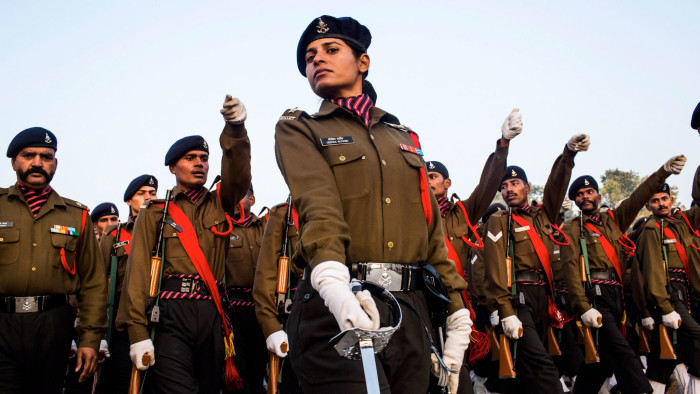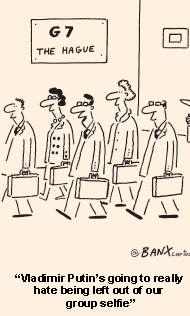Tea, sex and one last cavalry charge


Roula Khalaf, Editor of the FT, selects her favourite stories in this weekly newsletter.
India is full of surprises, and I have rarely been more surprised than to be invited, in the midst of a very 21st-century election campaign, to the British high commissioner’s residence to learn about centenary commemorations for the Indians who fought in the first world war.
Many of us born in the latter half of the 20th century know that Indian troops were involved on both sides in the second world war. Most fought with the Allies; yet others, driven by the struggle for independence from Britain, served in the ranks of the Japanese and Nazi armies.
But their role in the first war is less well known. Sir James Bevan, high commissioner, told the few history buffs and curious journalists able to tear themselves away from the drama of contemporary politics that no fewer than 1m Indians fought with the British, and 70,000 died. They fought at Ypres, on the Somme, at Gallipoli, in Mesopotamia, Egypt and Palestine. They took part in the siege of the German-controlled Chinese port of Tsingtao, captured Basra and were themselves besieged and defeated by Ottoman forces in Kut, south of Baghdad. “There are a lot of phenomenal stories of the Indian involvement in first world war,” says Rana Chhina, a retired squadron leader who conducts historical research at the United Service Institution of India, both of whose grandfathers fought.
Indeed there are stories. The German light cruiser Emden bombarded Madras (now Chennai), blowing up oil storage tanks and causing panic in the city. Ganga Singh, maharaja of Bikaner in Rajasthan, led his Camel Corps in a battle against the Turks over the Suez Canal and was a signatory of the Versailles peace treaty.
Brigadier Brian McCall, UK defence adviser, recalls that it was the Jodhpur Lancers who carried out the British army’s last mounted cavalry charge and so helped to win the Battle of Haifa in 1918. Delhi’s Teen Murti (Three Statues) monument commemorates soldiers from the princely states of Jodhpur, Hyderabad and Mysore. The Lutyens-designed India Gate at the heart of the capital was finished in 1931 as a memorial to the country’s war dead. “There’s real history here to be exposed, history that a lot of the youth of India will not be aware of,” says Brig McCall. “There’s courage and valour and gallantry and death and destruction and tragedy.”

And tea and sex. The brigadier says Indians returning home from the trenches brought back novelties such as wristwatches and the English habit of drinking sweet, milky tea. He does not mention sex, but Indian troops at war in France or convalescing in England – many of them Punjabis – were surprised to be welcomed into the arms of white working-class girls who regarded them as exotic treats rather than as social underlings.
“The ladies are very nice and bestow their favours upon us freely,” wrote Balwant Singh in a letter home from France, quoted in Outlook magazine. “But contrary to the custom in our country, they do not put their legs over the shoulders when they go with a man.”
All this social freedom was regarded with alarm by the colonial authorities, who were also concerned that Muslim Indian troops were uneasy about fighting against the Ottoman Sultan. Mahatma Gandhi, despite his support for non-violence, tried to recruit Indians into the army in the belief that their loyalty would advance the cause of independence. In 1917, Britain did promise “responsible government” (that is, self-government) to India, but it took the shock of the second world war to launch independence in 1947 and finally dismantle the British empire.
The first world war distribution among Indians of the Victoria Cross, Britain’s highest military honour, tells part of the story of what has happened to the country since – not just independence but also partition and war. Of the 11 VCs awarded to soldiers from what was then India, six went to present-day India, three to Pakistan and two to Nepal.
Asked whether Britain was celebrating its victory over Germany, Sir James replied: “The message that we want to convey is that the nations who were previously combatants and opponents in the war have now come together in peace to build a stable world in the 20th and 21st centuries.”
As Indians recall their role in the great war of a century ago, they can only hope the next conflict will not be fought on the territory of what was once British India. The region – including Bangladesh, Pakistan and Myanmar – has already suffered enough bloodshed since 1945.
victor.mallet@ft.com
Twitter: @VJMallet
Comments